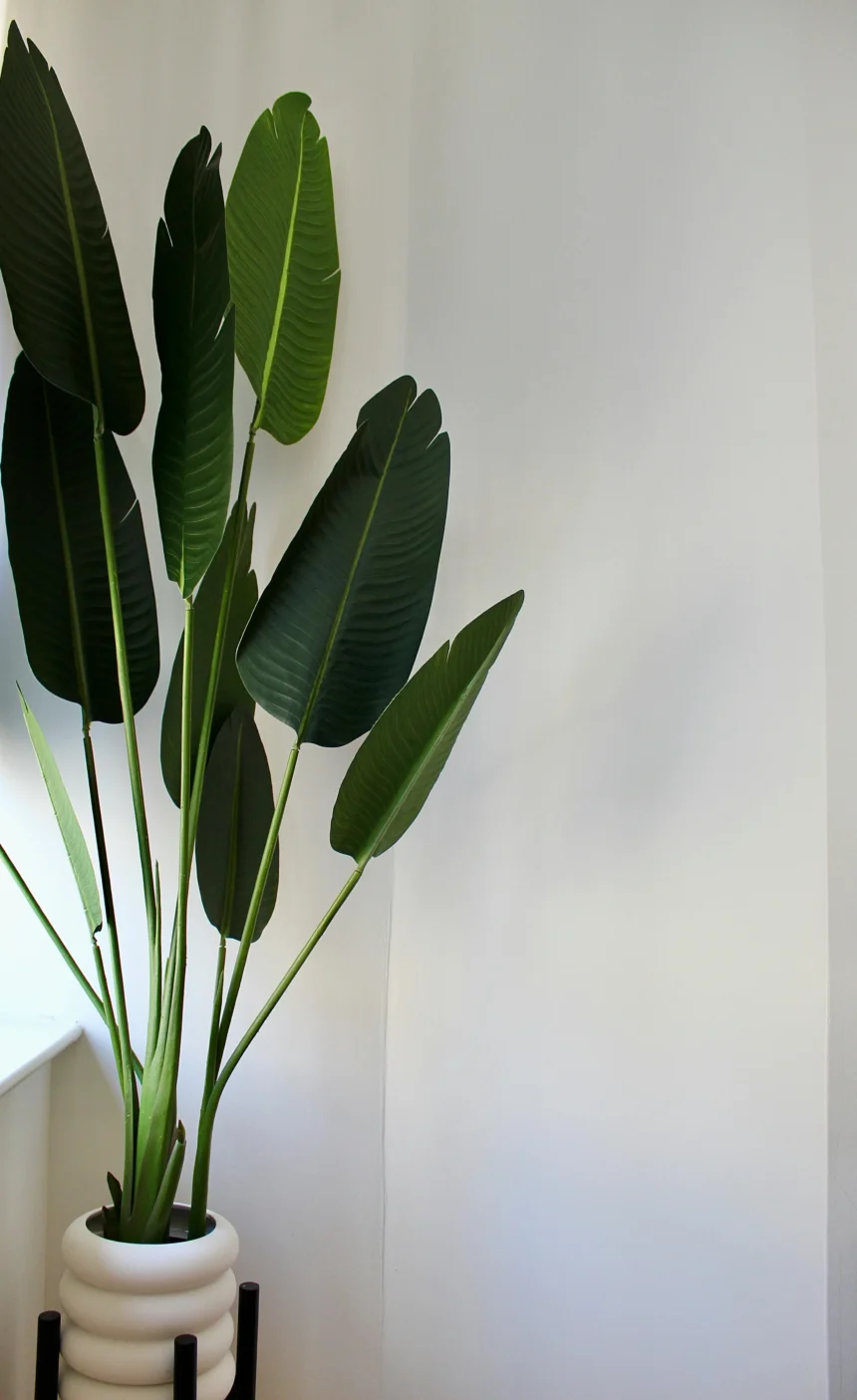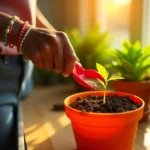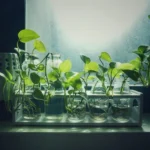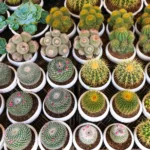Banana Plant Indoor: If you want to make your living space a green, tropical oasis, then this is how to do it by growing a banana plant indoors. Not only will this multipurpose plant bring a lot of exotic beauty into your house, but it also works well in relatively basic care conditions. Be it a beginner or an expert, this banana plant is surely going to impress.
This comprehensive guide covers everything from selecting the perfect variety to troubleshooting and maintaining your beautiful banana plant indoor. Let’s dive in and bring the tropics to your living room!
Why Choose a Banana Plant for Indoors?
Well, the banana plant indoors isn’t just a decorative piece; it’s a statement of style, vibrancy, and life. Here is why this tropical gem should not miss a spot in your house:
- Aesthetic Appeal: The large, bright green leaves make this plant a beautiful addition to any room.
- Air Purification: Similar to most houseplants, banana plants can help purify indoor air.
- Fast Growth: They grow quickly, adding a dynamic touch to your space.
- Non-Toxic: Safe for pets and children, making it an excellent choice for households.
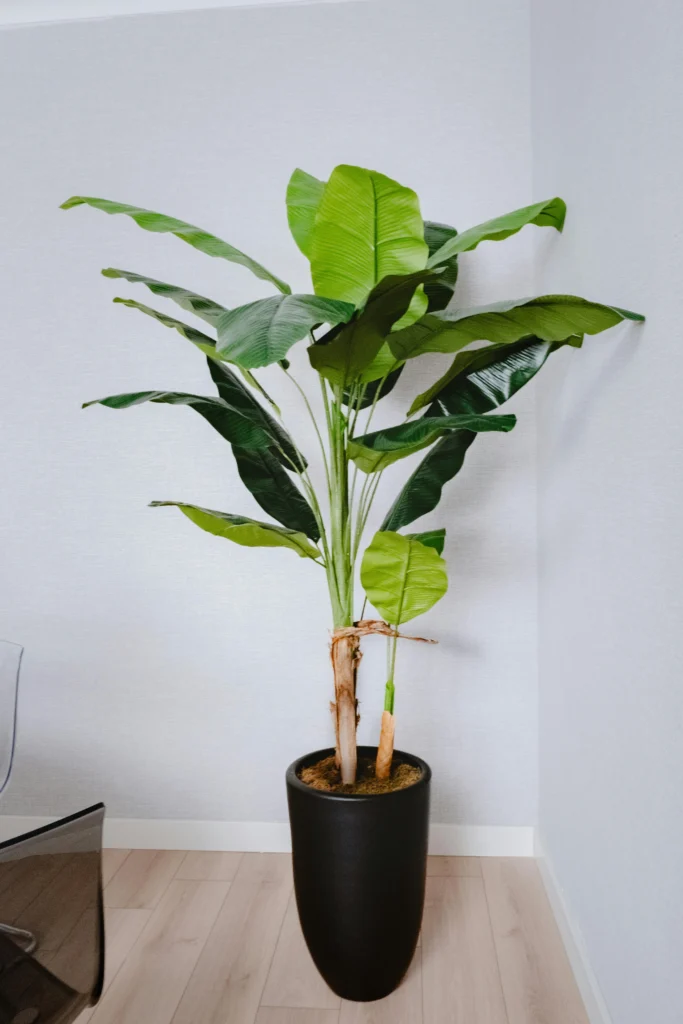
Getting Started: Picking the Right Banana Plant
When selecting a banana plant indoor, you’ll most likely encounter varieties like the Musa Dwarf Cavendish. These are specifically bred for indoor spaces and remain relatively compact compared to their outdoor counterparts.
Top Indoor Banana Plant Varieties
- Musa Dwarf Cavendish: Popular for its compact size and variegated leaves.
- Musa Basjoo: Said to be quite hardy, it may grow well in cooler temperatures.
- Red Banana Plant (Ensete ventricosum): Of course, there’s also the Ensete ventricosum with its bold reddish leaves.
Pro Tip: Avoid true banana plants unless you have one incredibly large space. Their height can be overwhelming indoors.
Where to Place Your Indoor Banana Plant
Lighting Needs
Bananas love to be in the light, and placing them can make a big difference in maintaining a healthy, happy banana plant. Place it as close as possible to a south- or west-facing window if possible. In areas of warmer climates, however, direct sun could be too much of an intense condition, and plants should be placed for bright, indirect light, or partial shade.
Quick Tips:
- In cooler zones, full sun through a window is usually acceptable.
- If there isn’t enough natural sunlight, use grow lights.
Temperature and Humidity
- Ideal Range: Banana plants prefer temperatures from 65°F to 80°F (18°C to 27°C).
- Humidity: Banana plants require high humidity levels above 50%. If your home is dry, it is a good idea to use a humidifier or put the plant on a pebble tray.
Planting and Soil Requirements
The Right Pot
Choose a pot that has drainage holes to prevent waterlogged soil. A little roomy is better for its roots to spread.
Soil Mix
A well-draining yet moisture-retentive soil is ideal. Here’s a perfect mix:
- 40% potting soil
- 30% perlite or bark-for drainage
- 30% vermiculite or coco coir-for retaining moisture
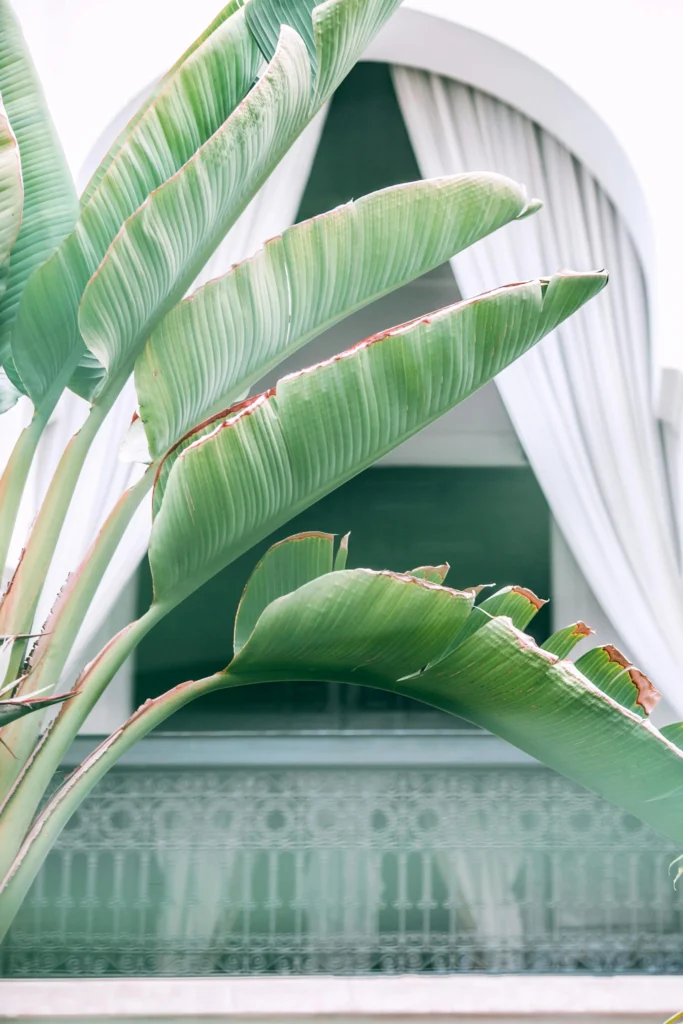
Watering Your Banana Plant Indoor
Banana plants are thirsty but sensitive to overwatering. Keep the soil consistently moist, not soggy.
How to Water Properly
- Check the top 2 inches of soil – if dry, it’s time to water.
- Water copiously until water runs off.
- Not to leave in standing water, which could cause root rot.
Seasonal Tips:
- Spring/Summer: water more frequently as the plant grows vigorously.
- Fall/Winter: Reduce watering as growth slows End.
Feeding Your Banana Plant
A fast-growing plant like the banana needs regular feeding, especially during its active growing season.
Fertilizer Recommendations
- Use a balanced liquid fertilizer
- Fertilize every two weeks in spring and summer.
- Gradually taper feeding through the fall and cease in winter if growth slows.
Troubleshooting Common Issues
Good plant parents have bad days, too. Here’s how to troubleshoot some common issues with your banana plant:
1. Brown or Crispy Edges
- Cause: Underwatered or low humidity.
- Solution:Mist more and water more often.
2. Yellowing Leaves
- Cause: Overwatering or nutrient deficiency.
- Solution: Water less and fertilize more.
3. Slow Growth
- Cause:Insufficient light or inferior soil.
- Solution:Move to a sunnier location and repot with fresh soil.
Propagation: Growing New Banana Plants
Banana plants make pups-small offshoots that can be removed and potted. Here’s how:
- Wait until the pup has a few roots of its own. Use a sterile knife to cut it away from the mother plant.
- Plant the pup in good draining soil and water thoroughly.
- Fun Facts About Banana Plants
Fun Facts About Banana Plants
- Non-Toxic: Safe for pets and kids.
- Not a Tree: Banana plants are really giant herbs!
- Fast Growth: With proper care, they will grow visibly within weeks.
Maintaining Your Banana Plant Long-Term
Consistency is the key to success with a banana plant indoors. With regular care routines, observation of light and humidity, and proactive troubleshooting, your plant will be able to grow well for years.
Conclusion: Embrace the Tropical Vibes
Embrace the Tropical Vibes Adding a banana plant indoor to your home is not only aesthetically pleasing, but a step towards creating a vibrant and nurturing environment. With their lush leaves and dynamic growth, the banana plants are sure to be the stellar performers in your indoor garden. So what are you waiting for? Bring the tropics home today!

